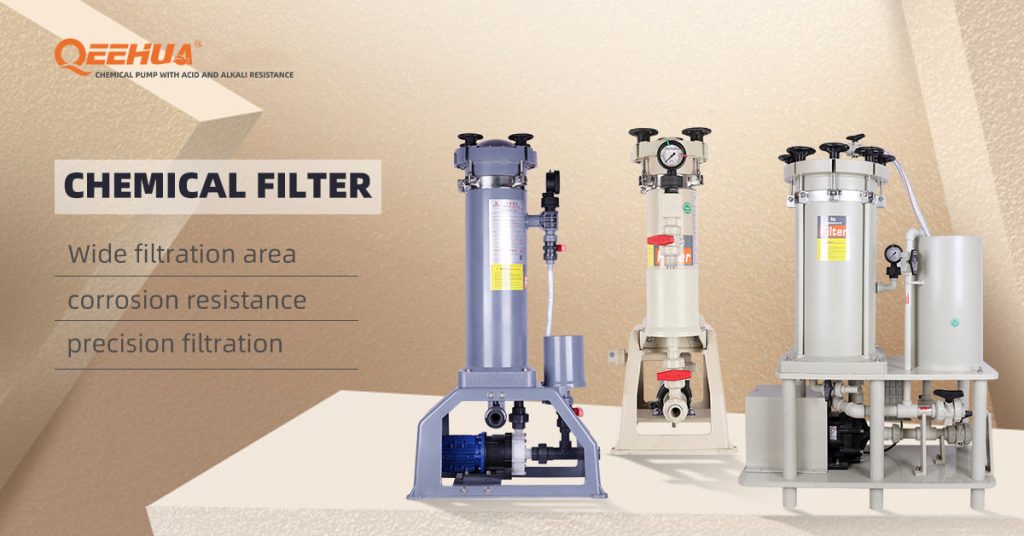
Electroplating Chemical Filtration Solutions for Enhanced Process Efficiency

# Electroplating Chemical Filtration Solutions for Enhanced Process Efficiency
Electroplating is a critical process in various industries, including automotive, electronics, and aerospace. It involves the deposition of a thin layer of metal onto a substrate to enhance its properties, such as corrosion resistance, electrical conductivity, and aesthetic appeal. However, the electroplating process can be hindered by impurities and contaminants in the chemical solutions used. This is where electroplating chemical filters come into play, offering a solution to maintain the purity and efficiency of the plating process.
## The Importance of Chemical Filtration in Electroplating
Chemical filtration is essential in electroplating to ensure the quality and consistency of the plated products. Impurities in the plating bath can lead to defects such as pitting, roughness, and poor adhesion of the metal layer. These defects not only compromise the quality of the final product but also increase production costs due to rework and waste.
Electroplating chemical filters are designed to remove particulate matter, organic contaminants, and other impurities from the plating solution. By maintaining a clean and stable chemical environment, these filters help to achieve uniform plating thickness, improve surface finish, and extend the life of the plating bath.
## Types of Electroplating Chemical Filters
There are several types of chemical filters used in electroplating, each suited to specific applications and contaminants:
### 1. Cartridge Filters
Cartridge filters are widely used in electroplating due to their high filtration efficiency and ease of maintenance. They consist of a replaceable filter cartridge housed in a durable casing. These filters can remove particles as small as 1 micron, ensuring a high level of purity in the plating solution.
### 2. Bag Filters
Bag filters are another common choice for electroplating applications. They are designed to handle larger volumes of liquid and are particularly effective in removing coarse particles. Bag filters are often used as a pre-filtration step before finer filtration methods.
### 3. Depth Filters
Depth filters, also known as depth bed filters, use a thick layer of filtration media to trap contaminants throughout the depth of the filter. These filters are highly effective in removing both particulate and organic impurities, making them ideal for applications where high purity is required.
### 4. Membrane Filters
Membrane filters are used for ultra-fine filtration, capable of removing particles as small as 0.1 microns. They are often used in the final stages of filtration to ensure the highest level of purity in the plating solution.
## Benefits of Using Electroplating Chemical Filters
Implementing chemical filtration in the electroplating process offers numerous benefits:
– **Improved Product Quality:** By removing impurities, chemical filters help to produce plated products with superior surface finish and adhesion.
– **Extended Bath Life:** Clean plating solutions reduce the frequency of bath replacement, leading to cost savings and reduced downtime.
– **Enhanced Process Efficiency:** Consistent filtration ensures stable plating conditions, resulting in more predictable and efficient production processes.
– **Environmental Benefits:** Effective filtration reduces the amount of waste generated, contributing to more sustainable manufacturing practices.
## Choosing the Right Filtration Solution
Selecting the appropriate chemical filter for your electroplating process depends on several factors, including the type of contaminants present, the volume of solution to be filtered, and the desired level of purity. It is essential to work with a knowledgeable supplier who can recommend the best filtration solution based on your specific needs.
Regular maintenance and monitoring of the filtration system are also crucial to ensure optimal performance. This includes timely replacement of filter elements, monitoring of pressure differentials, and periodic testing of the plating solution to detect any changes in purity.
## Conclusion
Electroplating chemical filters play a vital role in maintaining the efficiency and quality of the electroplating process. By removing impurities and contaminants, these filters help to produce high-quality plated products, extend the life of the plating bath, and enhance overall process efficiency. Investing in the right filtration solution is a key step towards
Keyword: electroplating chemical filter